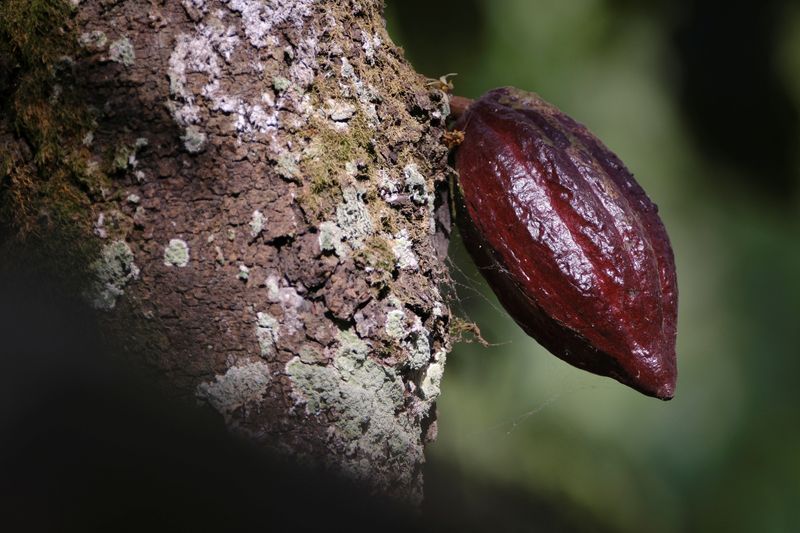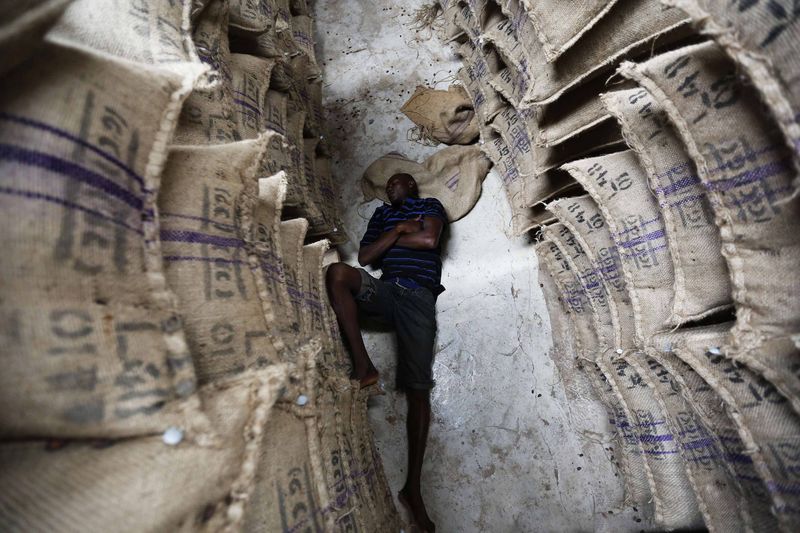By Maxwell Akalaare Adombila
HOHOE DISTRICT, Ghana (Reuters) – Low prices and payment delays are pushing Ghanaian cocoa farmers to sell to increasingly sophisticated smuggling gangs, siphoning production from border areas and casting doubt on next season’s production, growers and officials told Reuters.
According to them, if the financial impasse is not resolved and the gap between Ghana’s official price and the amount paid by the traffickers cannot be closed, the already dire situation of the world’s second largest producer will be threatened even further. to worsen.
“From January to now, we have not been able to sort any cocoa,” said Frank Amoah-Frimpong, top official of state marketing agency Cocobod in the eastern border regions of Volta and Oti. “It’s sad. It’s sad.”
Global cocoa prices have risen sharply since the start of this year as bad weather, disease and illegal mining have led to disastrous harvests in Ghana and Ivory Coast, the world’s largest cocoa growers.
While cocoa now trades at about double the price of a year ago, the price set by the government of Ghana for farmers does not reflect this increase.
That has given an advantage to smugglers operating from neighboring Togo, a dozen farmers and officials from Cocobod and the security forces told Reuters.
Cocobod sells its harvest forward and uses the average sales price to determine the farm price. Because world prices were much lower when this season’s cocoa was sold, raising the price farmers pay now would mean accepting a crop loss.
In April, the farm price was still increased by almost 60%, partly to discourage trading.
But local buyers say they cannot compete with smugglers who are willing to pay more than double the official price and pay little attention to the quality of the beans.
Cocobod officials told Reuters that none of the cocoa produced in the Volta and Oti regions since January has been purchased by officially recognized buyers.
Everything has been traded, they say, and the zone has also become a conduit for the smuggling of beans from other regions in Ghana.
A licensed buyer in eastern Ghana, who asked not to be named for fear of reprisals by criminal gangs, said smuggling has increased in the past three seasons.
Of the 28,000 bags of cocoa purchased in the 2020/21 season, buyers have only been able to obtain 870 bags so far this season.
“We have money. If someone tells us today that he has 1,000 bags, I will get money to pay on delivery,” the buyer said. “But the farmers sell to those who buy and send to Togo because their price is higher.”
Other licensed purchasing companies in the Volta and Oti regions have struggled due to a lack of financing from Cocobod. Many are simply closed.
‘ORGANIZED CARTEL’
Joshua Dogboe, a farmer from the Likpe area of eastern Ghana, said he still owed money for cocoa he supplied to state buyer PBC last season, just weeks before the local office was closed.
“I have to take care of the costs and if the smugglers come with money to buy, I will sell quickly,” he told Reuters.
Cocobod has said it lost about 150,000 tons of cocoa production last season to smuggling and the destruction of plantations by illegal gold miners.
Neither Cocobod officials nor police would provide an estimate of the current season’s losses.
However, they said the smuggling gangs have become braver and more sophisticated and in some cases are financed and operated by foreigners from Lebanon, China, France and Russia based in Togo.

Abu Seidu, head of the Cocoa Health and Extension Division of Cocobod in the Volta and Oti regions, said farmers used to carry bags of cocoa across the mountain border on motorcycles.
“Now you see a dump truck loaded with cocoa and crushed stone on it as a disguise,” he said. “If you come across a truck with 800, 500 or 200 bags, it tells you that someone is now collecting the cocoa… It is now an organized cartel.”


